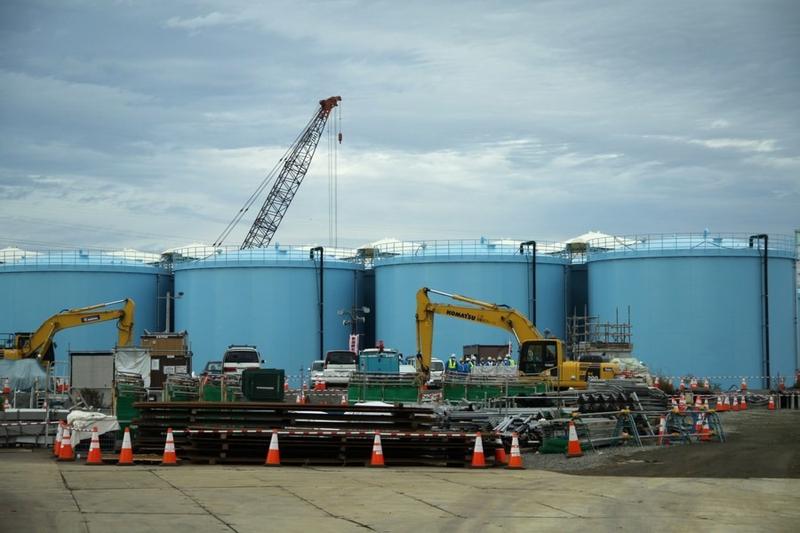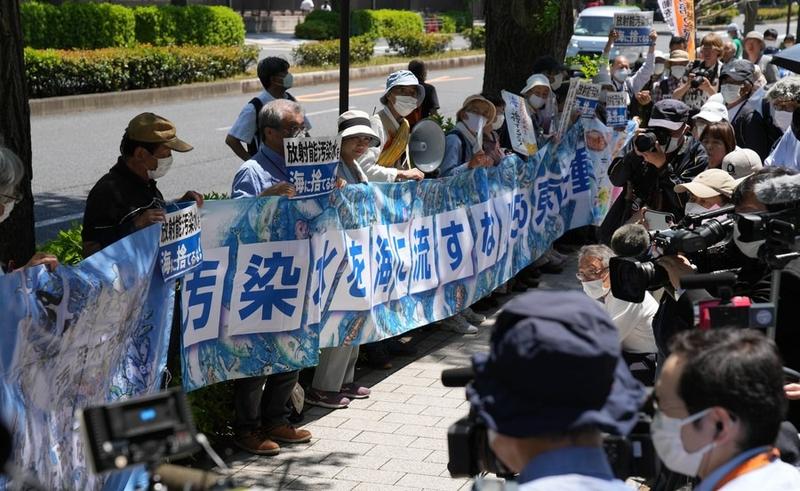 This file photo was taken on Oct 12, 2017, shows huge tanks that store contaminated radioactive wastewater in Fukushima Daiichi nuclear plant, in Fukushima prefecture, Japan. (PHOTO / XINHUA)
This file photo was taken on Oct 12, 2017, shows huge tanks that store contaminated radioactive wastewater in Fukushima Daiichi nuclear plant, in Fukushima prefecture, Japan. (PHOTO / XINHUA)
TOKYO - The operator of the crippled Fukushima Daiichi nuclear power plant has found leaks in a hose used to transfer nuclear-contaminated wastewater, local media reported on Friday.
Tokyo Electric Power Company (TEPCO) conducted a probe after higher-than-usual levels of radioactive material were detected in rainwater in the dike around a storage tank, public broadcaster NHK reported.
TEPCO said that someone caused the cracks with a cutter blade while removing the packaging around the hose after it was delivered, adding that the water that leaked remained inside the barrier
An inspection found that some water had leaked from cracks of about four centimeters on a hose being used for transferring radioactive wastewater at the time, the report said.
ALSO READ: Expert: IAEA’s Fukushima report wrong
As the hose was used to transfer radioactive wastewater from another tank, TEPCO analyzed water in the dike around the tank and detected up to 67,000 becquerels of tritium per liter, which exceeded 60,000 becquerels, the standard set by the Japanese government for releasing tritium into the environment.
TEPCO said that someone caused the cracks with a cutter blade while removing the packaging around the hose after it was delivered, adding that the water that leaked remained inside the barrier.
ALSO READ: Analysts: Tokyo nuclear wastewater discharge all about money
TEPCO added that the leak would not affect the plan to discharge the radioactive wastewater from the plant into the ocean.
 People rally in front of the second members' office building of the House of Representatives to protest against the Japanese government's plan to discharge nuclear-contaminated water into the sea in Tokyo, Japan, May 16, 2023. (PHOTO / XINHUA)
People rally in front of the second members' office building of the House of Representatives to protest against the Japanese government's plan to discharge nuclear-contaminated water into the sea in Tokyo, Japan, May 16, 2023. (PHOTO / XINHUA)
Despite strong opposition from neighboring and Pacific island countries, as well as local fishermen over the irreversible impacts on the marine environment and public health, the Japanese government and TEPCO have been pushing for release of the radioactive wastewater from the Fukushima nuclear power plant hit by a massive earthquake and an ensuing tsunami in March 2011.


